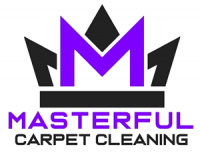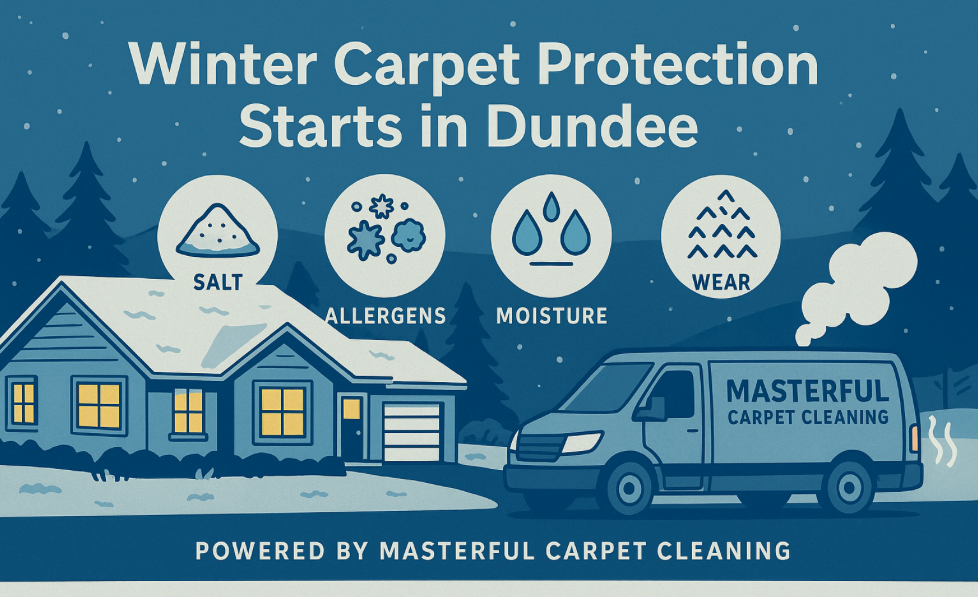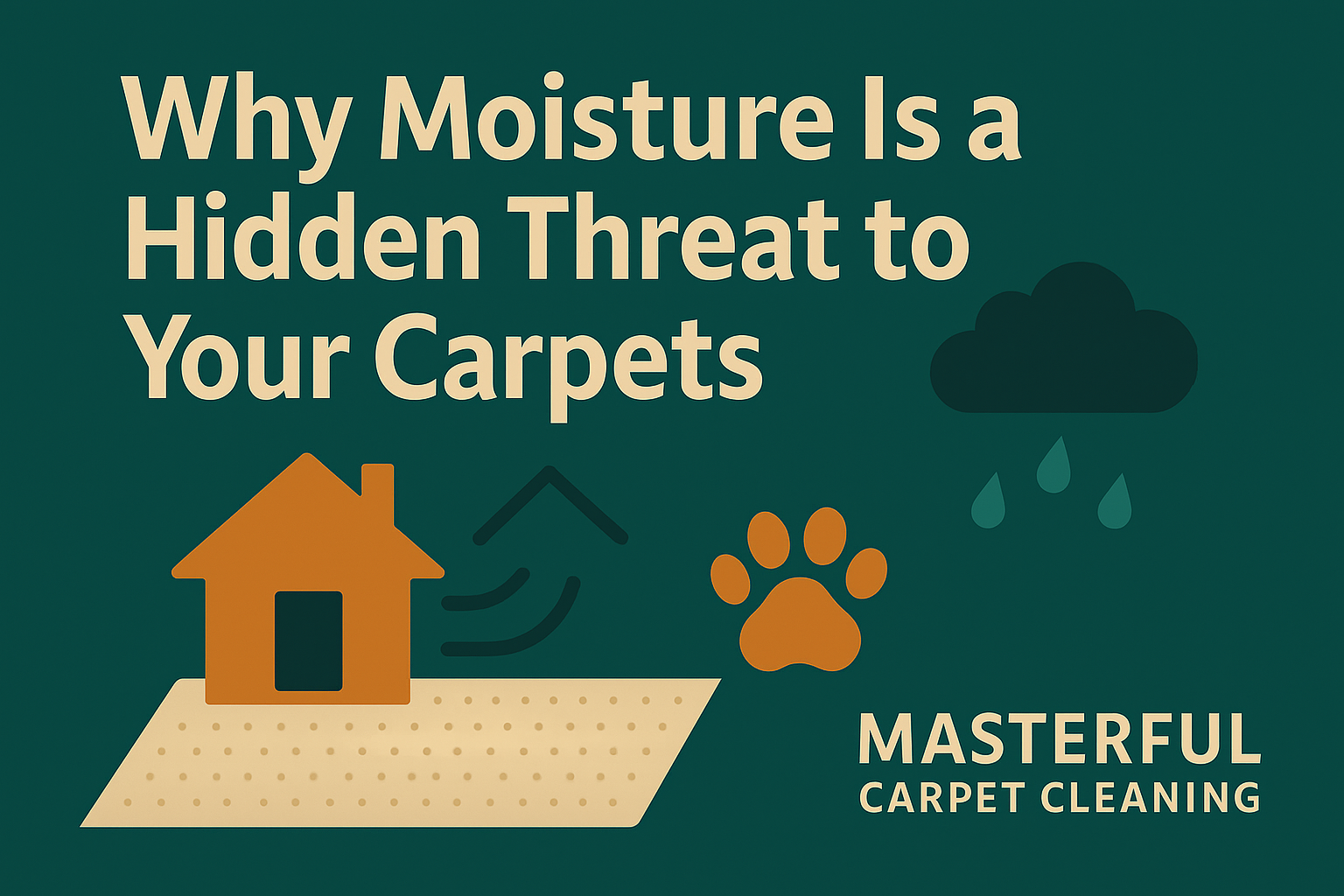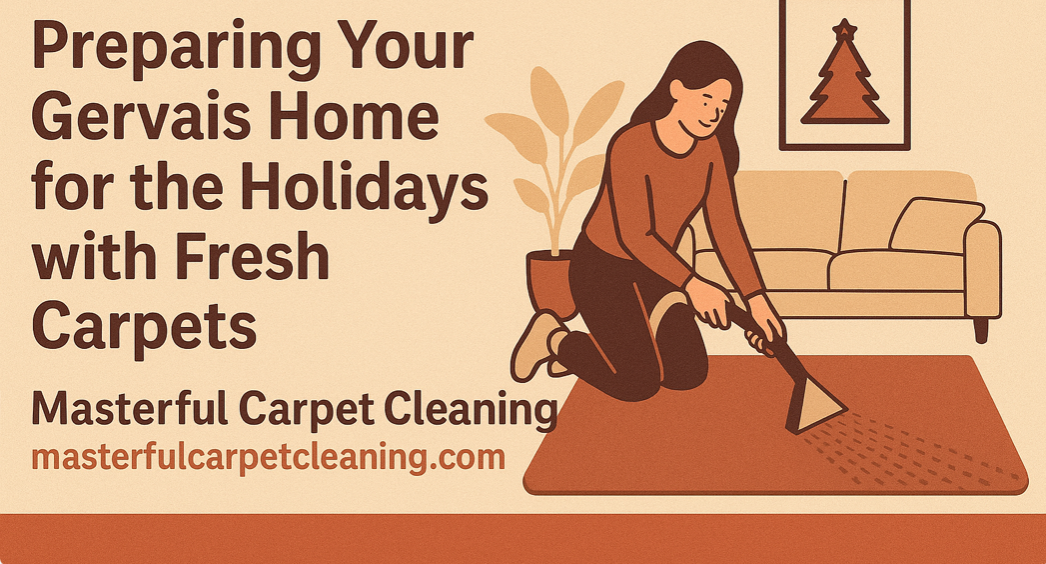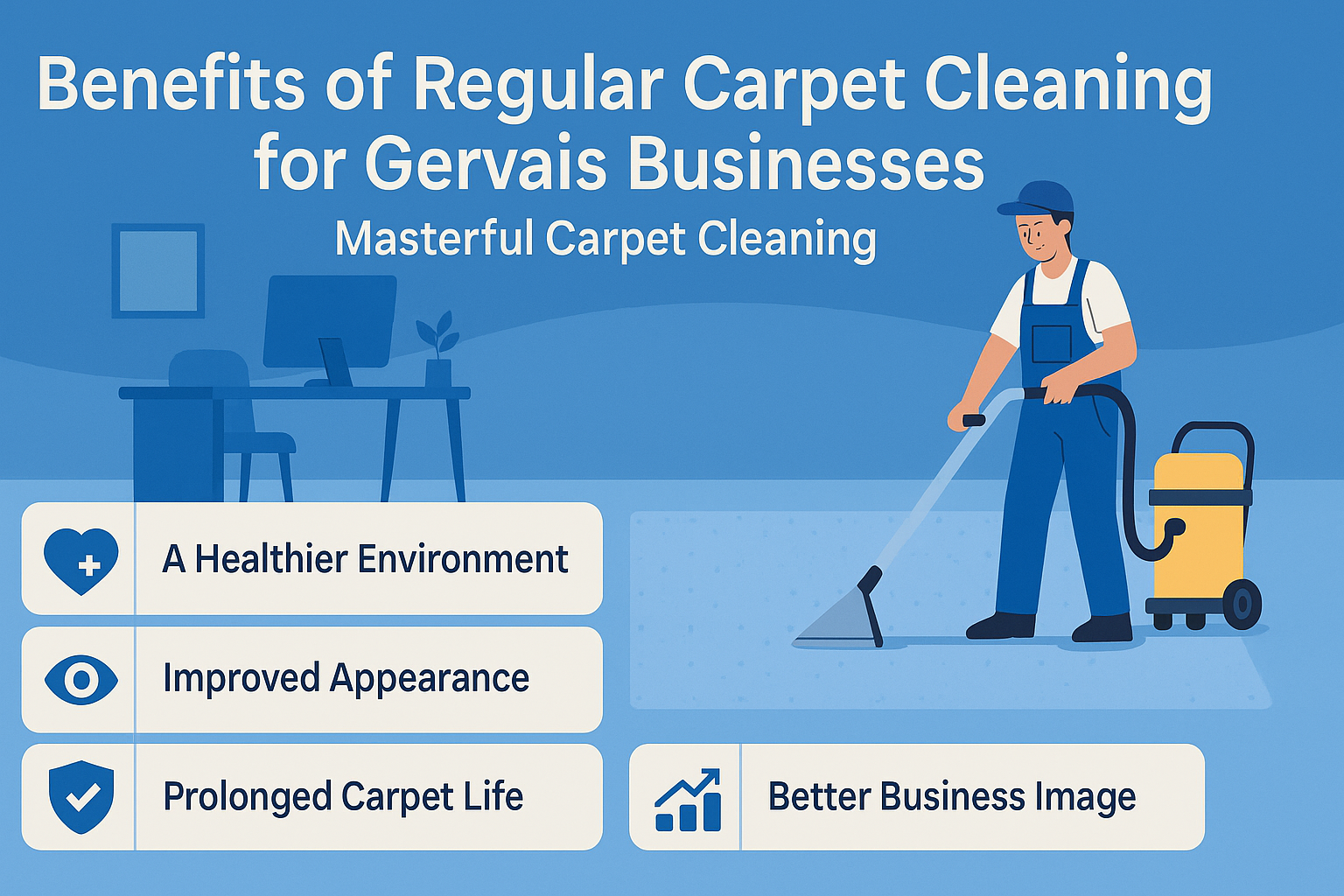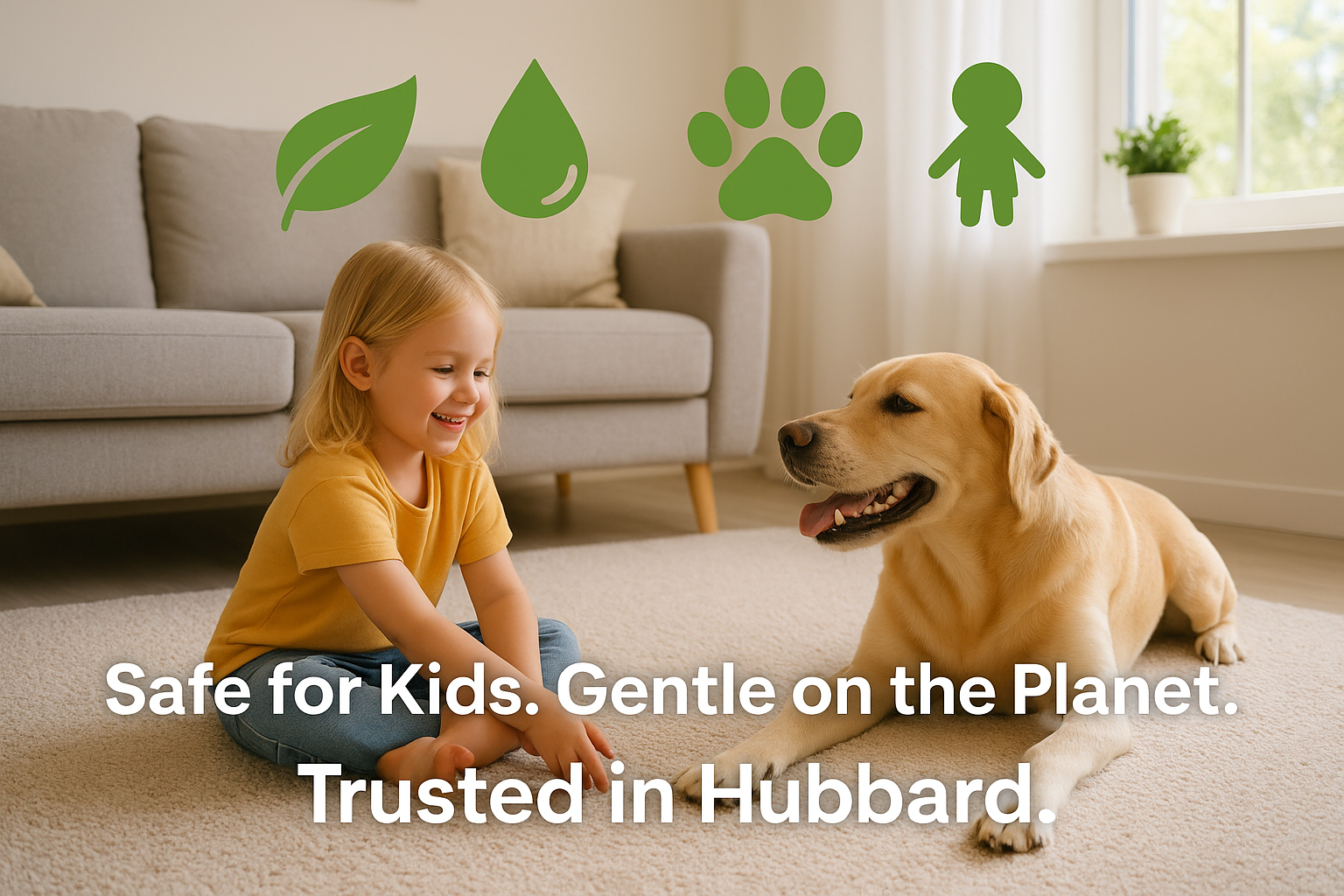How to Maintain Clean Carpets in Lewisburg’s Rural Settings
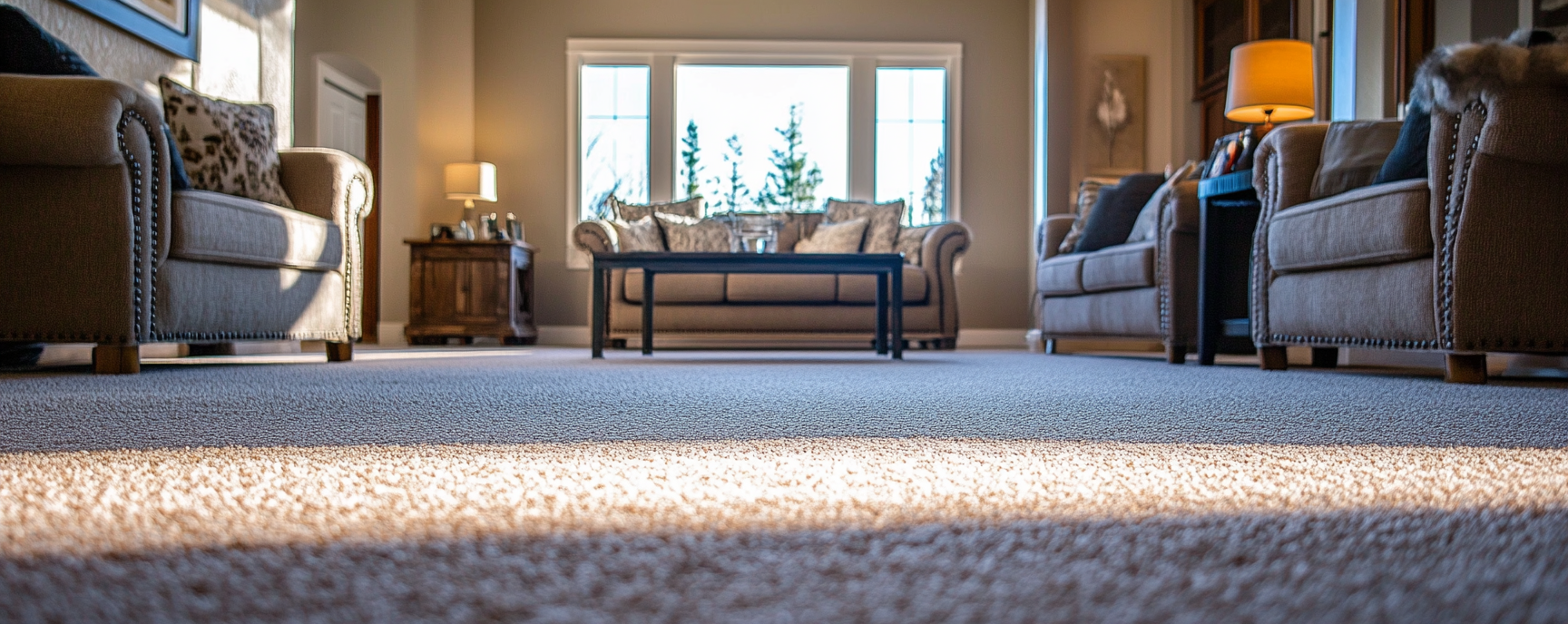
Living in Lewisburg’s scenic countryside comes with perks, open space, fresh air, and natural beauty. But rural life also brings unique carpet care hurdles that city dwellers rarely face.
Farm dust, clay-rich soil, wet paw prints, and seasonal mud are frequent intruders. From backyard chickens, garden plots, or gravel driveways, outdoor debris gets tracked inside and trapped in carpet fibers. In wet seasons, clay soil turns sticky and invasive, making routine cleaning important.
Pets add to the mix: rural dogs often run through pastures or trails before leaping onto rugs or furniture. Combined with daily foot traffic and limited pavement, rural carpets must withstand a constant influx of grit, allergens, and moisture.
Understanding these sources of dirt is the first step. Rural living doesn’t have to mean dirty carpets, it just means smart, proactive upkeep is part of the lifestyle.
🚪 How Can You Prevent Outdoor Dirt from Getting into Your Carpet?
The most effective rural carpet strategy? Stop the dirt at the door. Prevention is easier (and cheaper) than constant cleanup.
-
Layered entry mat systems – One coarse mat outside and an absorbent one inside scrape off mud and moisture before shoes ever hit carpet. Look for rubber-backed outdoor mats paired with plush microfiber interior rugs.
-
Shoe removal rules. A polite sign for guests or a family tradition, leaving shoes at the door dramatically reduces the soil load.
-
Porch and path cleanup. Clearing fall leaves or winter slush keeps entry points tidy. Wet leaves and road salt can stain or damage carpet if ground in.
-
Pet paw wiping stations. Placing towels or dedicated rugs by the door helps rural dog owners limit muddy tracks.
With a few habits and tools in place, you can reduce incoming dirt by over 80%. That means less vacuuming, fewer stains, and longer-lasting carpets, all from the front door.
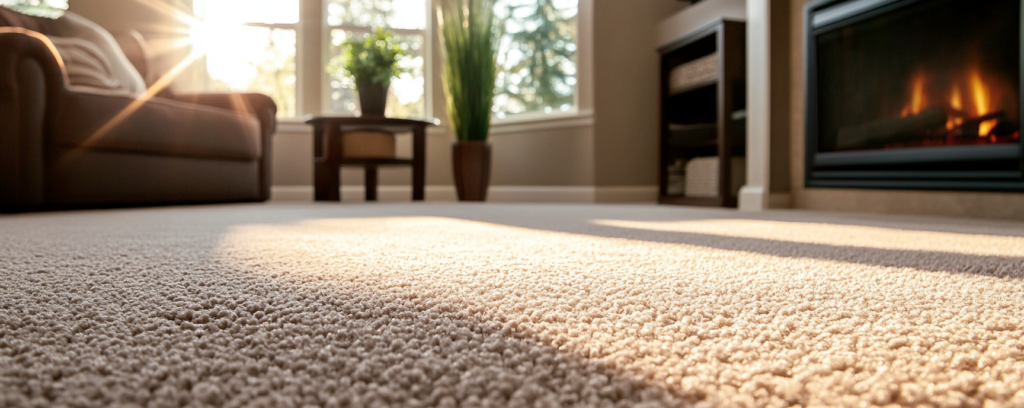
📅 How Should You Adjust Your Carpet Care by Season?
Lewisburg’s rural rhythms shift through the year, and so should your carpet routine. Here’s how to adapt maintenance seasonally:
🌸 Spring – How Do You Reset Your Carpet After a Wet Winter?
-
Deep clean to remove winter mud, ash, and moisture residue.
-
Vacuum more often during pollen peaks to reduce allergens.
-
Choose dry days for cleaning; use fans and open windows to speed carpet drying.
☀️ Summer – How Can You Fight Dust and Humidity?
-
Increase vacuuming to tackle fine rural dust.
-
Spot-clean spills quickly to prevent sour odors from heat and bacteria.
-
Use dehumidifiers on humid days to prevent mold or dampness in carpets.
🍂 Fall – How Do You Prepare for Harvest Debris and Mud?
-
Rake leaves near entrances; leaf bits can stain carpets.
-
Use boot trays and towel mats on muddy days.
-
Spot-clean dried mud and schedule a fall deep clean before winter sets in.
❄️ Winter – What’s the Best Way to Handle Wet Footwear and Soot?
-
Reinforce no-shoe rules and rotate mats frequently.
-
Use rugs that absorb melted snow and prevent salt damage.
-
Vacuum more to combat indoor dust and ash from wood heating.
By syncing your carpet care with the seasons, you stay ahead of the mess rather than reacting to it. The result? Carpets that look great year-round and feel healthier underfoot.

🧼 How Often Should You Deep Clean Carpets in a Rural Home?
Even with preventive care, rural carpets need deep cleaning, not just to look good, but to stay healthy and last longer.
🌀 Why Deep Clean at All?
Rural carpets accumulate embedded grit, allergens, and organic matter. Over time, this degrades fibers, dulls appearance, and can trigger respiratory issues. A deep clean lifts out what regular vacuums can’t reach.
🗓️ When’s the Best Time?
-
Spring: Clear winter buildup, mud, wood stove ash, and tracked-in moisture.
-
Fall: Remove leaf debris, farm chaff, and pre-winter grime.
-
Mid-Summer (optional): If skipped in spring, summer’s dry days help carpets dry faster.
🧽 DIY or Professional?
-
DIY options: Rent a steam cleaner or use a spot extractor for minor jobs.
-
Professional services: Recommended once or twice a year. Professionals extract more dirt and moisture and can treat pet stains, odors, and allergens.
Lewisburg residents often rely on local experts like Masterful Carpet Cleaning, who understand the specific challenges of rural homes and soil types.
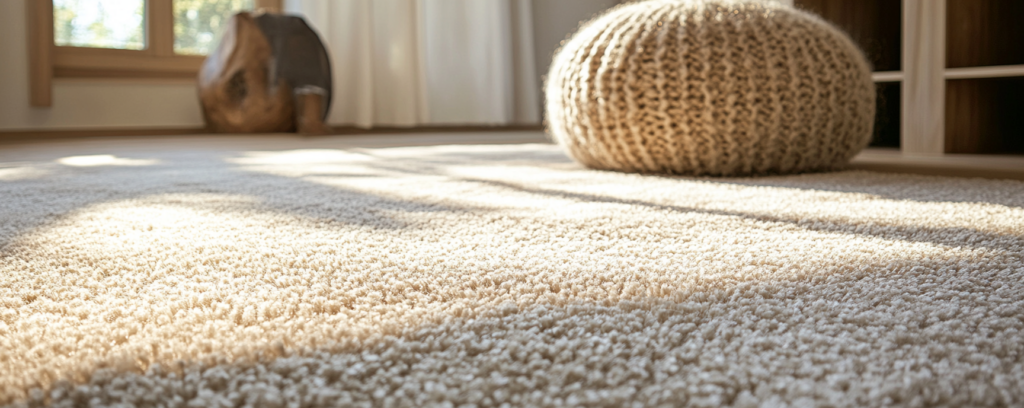
🧽 What Carpet Cleaning Tools and Products Should Rural Homes Use?
Having the right tools means faster cleanup, fewer stains, and healthier air.
🧹 Vacuuming
-
Use a HEPA-filter vacuum to trap fine rural dust and allergens.
-
Vacuum 2–3× per week in high-traffic zones or daily during muddy seasons.
-
Use slow passes in both directions, especially in pathways or pet zones.
💦 Spot-Cleaning Gear
-
Keep enzymatic cleaners for pet accidents.
-
Use vinegar + water or mild detergent for organic dirt or milk spills.
-
A portable spot extractor (like a handheld carpet cleaner) is great for fall mud or minor pet mishaps.
💡 Additional Tools
-
Carpet rakes or brushes fluff up matted areas before vacuuming.
-
Baking soda absorbs odors, sprinkle, let sit, and vacuum.
-
A dehumidifier is a must during humid seasons or in basements.
Equipping your rural home with the right carpet tools is an investment in both cleanliness and carpet longevity.
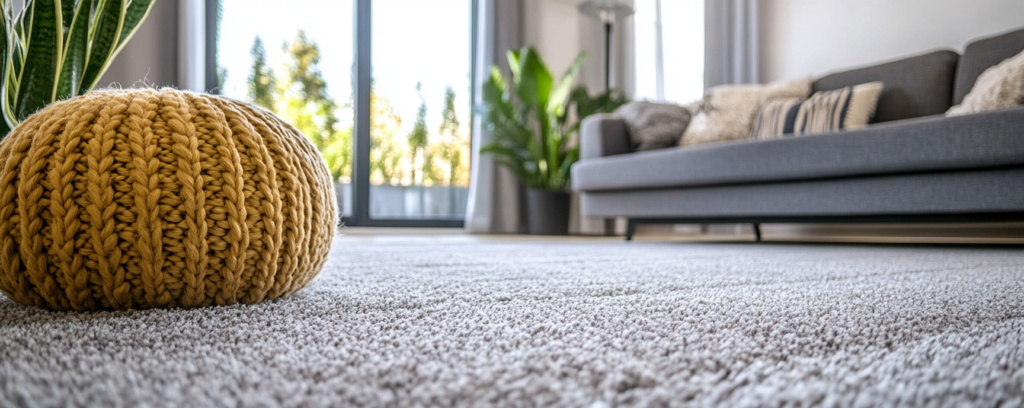
🧼 When Should You Call a Professional Carpet Cleaner?
Even meticulous homeowners hit the limit of what DIY can do. Here’s when to bring in the pros:
🧯 Signs It’s Time:
-
Stubborn stains (mud, pet urine, unknown dark patches)
-
Widespread odor (especially musty, smoky, or “wet dog” smell)
-
Traffic lanes that stay dark after vacuuming
-
Post-winter or post-party recovery
🛠️ What Professionals Offer:
-
Hot water extraction flushes out deep grime and bacteria.
-
Powerful moisture extraction minimizes drying time (vital in humid Lewisburg).
-
Odor treatments neutralize, rather than mask, pet and mold smells.
-
Protective sprays repel future dirt and stains.
🏠 Why Masterful Carpet Cleaning?
This Lewisburg-based company specializes in rural carpet care, clay soil, high-traffic entryways, and multi-pet homes. Their fast-dry system and rural stain expertise make them the go-to for local homeowners, renters, and landlords alike.
Hiring a professional every 12-18 months keeps carpets healthy and extends their usable life, especially in environments with heavy soils or frequent visitors.
🚪 How Can You Protect Carpeted Entryways from Rural Dirt?
Carpeted entry zones in Lewisburg’s rural homes take a beating, but smart tactics keep mud and mess at bay.
🧼 What Should You Put at the Door?
-
Layered doormats: Use an outdoor scraper mat + an indoor absorbent mat.
-
Boot trays: Capture runoff and mud at the doorstep.
-
Sacrificial rugs: Place washable throw rugs or carpet remnants over wall-to-wall entry carpets.
🧽 What Cleaning Habits Help?
-
Vacuum the entry rug and surrounding carpet daily during muddy seasons.
-
Lift and shake rugs outside weekly to remove trapped grit.
-
Keep a spot cleaner handy for quick mud splatters or dropped items.
🏠 Tips for Renters & Landlords
-
Renters: A removable rug protects your deposit and saves cleaning time.
-
Landlords: Consider using stain-resistant carpet or hard flooring in entryways to minimize long-term wear.
By reinforcing the first 6 feet inside your home, you trap most dirt and moisture before it spreads.

🛣️ How Do You Maintain High-Traffic Carpet Paths in Rural Homes?
Hallways, living room shortcuts, and “go-to” routes show wear fast, especially with pets and boots involved.
🚶♂️ What Can You Add?
-
Runner rugs down hallways or main traffic zones protect carpet from compression and soiling.
-
Rotate furniture or rugs occasionally to change traffic flow and minimize visible “lanes.”
🔁 What Routine Maintenance Works Best?
-
Double-pass vacuuming on well-trodden paths lifts embedded grit.
-
Use a carpet rake before vacuuming to revive flattened areas.
-
Deep clean these lanes more frequently than the rest of the house, 2-3 times yearly if needed.
👣 Carpet Preservation Bonus
-
Add carpet protector sprays to these paths after cleaning.
-
If wear patterns become visible, a strategic rug can hide them while you plan for professional cleaning or repairs.
High-traffic areas are where carpet aging starts first, preventing that keeps your whole home looking cleaner.
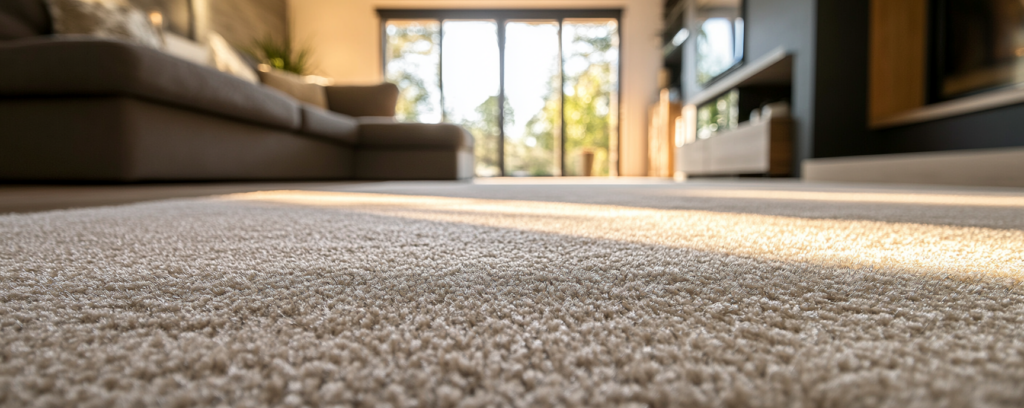
🧺 How Should You Care for Area Rugs on Carpet or Hard Floors?
Area rugs are often the first line of defense, catching dust, pet fur, and debris before they reach the base carpet.
🧼 What’s the Best Routine?
-
Vacuum area rugs weekly or more often in pet or entry zones.
-
Shake or beat rugs outdoors monthly to remove trapped dust and allergens.
-
Washable rugs? Toss in the machine every few weeks, especially in spring or fall.
🔄 Do You Need to Rotate Rugs?
-
Yes! Rotate rugs seasonally to allow even fading and wear.
-
In rooms with strong sunlight or frequent use, rotation also prevents discoloration spots.
🧽 Should You Clean Under Rugs?
Absolutely. Fine dirt and grit filter through rugs and grind into underlying carpet or floor. Vacuum underneath regularly and wipe hard floors clean.
🧼 Bonus Tip: Professional Rug Cleaning
For high-value or delicate rugs (wool, oriental, large woven styles), schedule professional rug cleaning every 1-2 years.
Area rugs may seem small, but with proper care, they’re a huge asset in preserving the flooring beneath them.
🧴 What Carpet Protection Products Work Best in Rural Lewisburg Homes?
Rural life is full of grit, mud, and mess, carpet protectants help you stay ahead of the stains.
🛡️ What Are Fiber Protectants?
-
Spray-on formulas like Scotchgard™ create an invisible barrier around fibers.
-
They cause liquids to bead up, making blotting more effective.
-
Ideal for homes with kids, pets, or frequent outdoor activity.
🧼 When Should You Apply Them?
-
Only apply after a thorough cleaning, never over dirty carpet.
-
Reapply every 6-12 months, especially in high-traffic areas.
💡 Bonus: Entry-Specific Protectants
Some fluorochemical sprays are made specifically for entry rugs and carpet transitions, adding an extra layer where mud hits first.
💡 Pro Tip: Let the Pros Apply
When hiring Masterful Carpet Cleaning, ask them to apply a protector post-cleaning, they’ll use commercial-grade versions with better durability.
A few sprays today can save hours of stain removal later, protective treatments are a smart rural carpet hack.
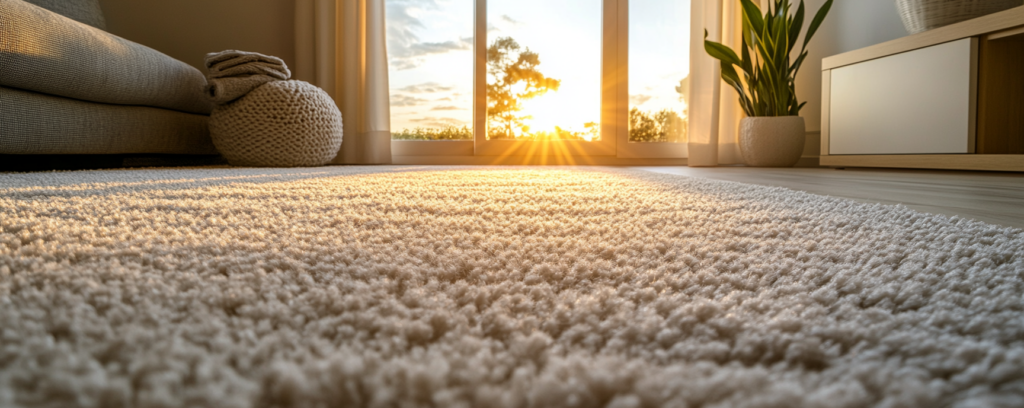
🤧 How Do You Control Allergens and Odors in Rural Carpets?
Lewisburg’s countryside is beautiful—but with pollen, pets, and outdoor activity, clean air and carpets need a plan.
🤧 What Helps with Allergens?
-
HEPA vacuums trap fine particles like pollen and dander.
-
Vacuum at least weekly, or daily during spring bloom or when pets shed.
-
Use air purifiers and dust furniture often to reduce airborne particles that settle in carpet.
🧽 Deep Cleaning for Allergy Relief
-
Steam-clean carpets seasonally to remove embedded allergens.
-
For sensitive individuals, mention allergies when booking with pros, they may use neutralizing rinses.
🦠 What About Mold?
-
Keep indoor humidity below 50% using dehumidifiers.
-
If carpet feels damp without spills, that’s a sign of excessive ambient moisture, address it fast.
-
Never ignore a musty smell, it often signals hidden mold beneath carpet padding.
🐶 How Do You Fight Rural Odors?
-
Use baking soda to absorb odors (sprinkle, wait, vacuum).
-
Spot clean pet accidents and spilled food immediately.
-
Consider enzyme sprays or professional deodorizing services like those offered by Masterful Carpet Cleaning.
Clean carpets should feel soft and smell fresh, especially in a home surrounded by fields and fur.
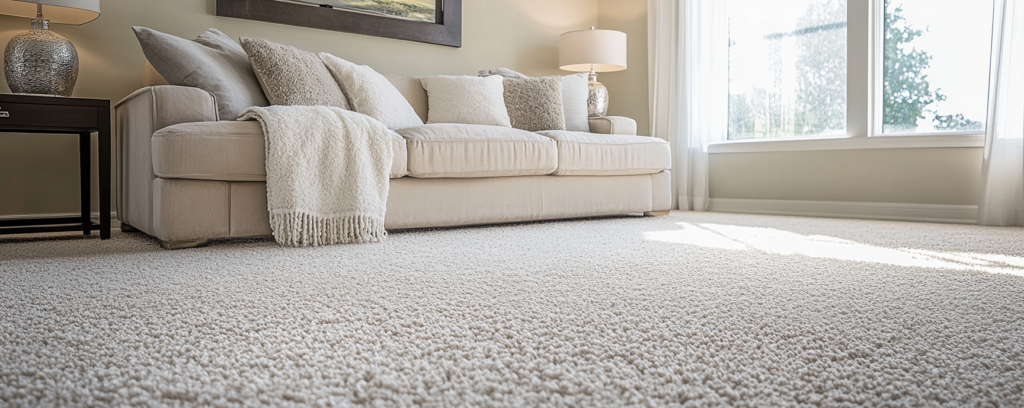
📅 How Can You Preserve Carpet Longevity in Rural Living?
Rural Lewisburg homes put carpets to the test, here’s how to keep them looking and feeling great for years.
📋 What’s the Long-Term Strategy?
-
Stick to a cleaning calendar, vacuum weekly, deep clean seasonally.
-
Move furniture occasionally to avoid pile compression or fading from sun exposure.
-
Repair small damage early (like snags or bleach spots) to prevent spreading.
🪟 How Do You Prevent Sun Damage?
-
Use curtains or UV-filtering film to block harsh rays from fading carpets.
-
Rotate area rugs to prevent uneven fading.
🧽 Is Quality Padding Important?
-
Yes! A good carpet pad absorbs impact, reduces wear, and adds comfort.
-
If you’re replacing flooring, invest in better padding, it extends carpet life by years.
📚 Do Warranties Matter?
-
Many carpet warranties require professional cleaning every 12-18 months.
-
Keep receipts and logs, this also helps landlords track care and assess wear.
Carpet isn’t just decor, it’s a long-term investment. Maintain it like one.
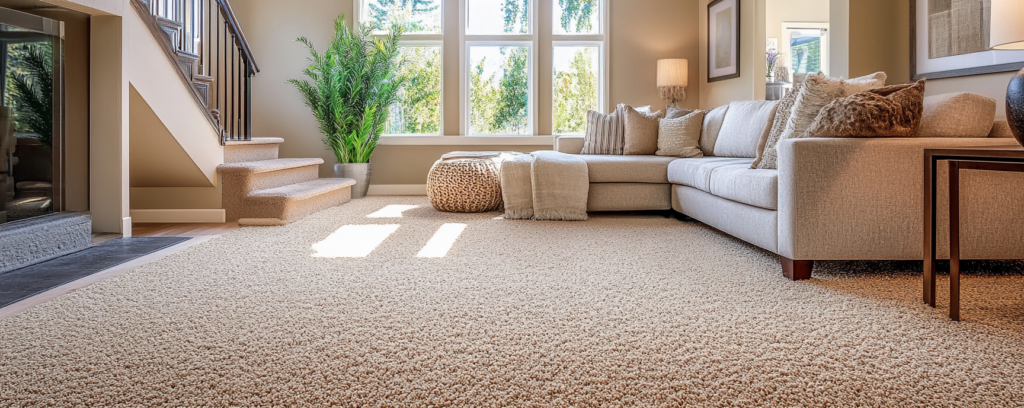
🏠 What Special Carpet Tips Do Renters and Landlords in Lewisburg Need?
Whether you’re managing a rural rental or living in one, carpet care expectations are different outside the city.
📄 Tips for Renters:
-
Know your lease, many require professional carpet cleaning at move-out.
-
Use area rugs in heavy-use spots to avoid wear deductions.
-
Promptly report water leaks or dampness to landlords to avoid mold blame.
-
Keep pets clean and address accidents ASAP to protect your deposit.
🛠️ Tips for Landlords:
-
Install stain-resistant carpet or carpet tiles in high-risk areas.
-
Require tenants to show receipts for end-of-tenancy carpet cleaning.
-
Offer a mid-tenancy carpet refresh (even as a bonus), keeps the unit appealing and reduces damage.
-
Budget for pro cleaning between tenants, companies like Masterful Carpet Cleaning often offer volume pricing or maintenance plans.
Good communication and clear expectations mean fewer disputes and cleaner carpets for everyone.
What Does a Clean Carpet Mean in Lewisburg?
Maintaining clean carpets in rural Lewisburg doesn’t have to be a losing battle. With the right preventive strategies, seasonal deep cleans, and smart routine maintenance, homeowners, renters, and landlords alike can enjoy cleaner, longer-lasting flooring.
🔑 Key Takeaways:
-
Dirt control starts at the doorway, mats, no-shoe rules, and daily entry care make a huge difference.
-
Adjust your care routine seasonally to tackle spring allergens, summer dust, fall mud, and winter moisture.
-
Schedule professional carpet cleaning at least once a year, or more if pets, farming, or kids add extra wear.
-
Use protectants and HEPA tools to reduce allergens, stains, and odors in the long term.
Clean carpets aren’t just about looks, they support a healthier, more comfortable home, no matter how rural your road is.
🌐 Book Online
💬 Get a Free Quote: Fast & hassle-free estimates!
Author
-

As the Co-Owner of Masterful, Randy has been providing quality cleaning services to the Salem and Portland areas of Oregon for many years. He has built a reputation for excellence in the industry. His team take prides in using the latest cleaning techniques and technologies to deliver exceptional results every time.
View all posts
